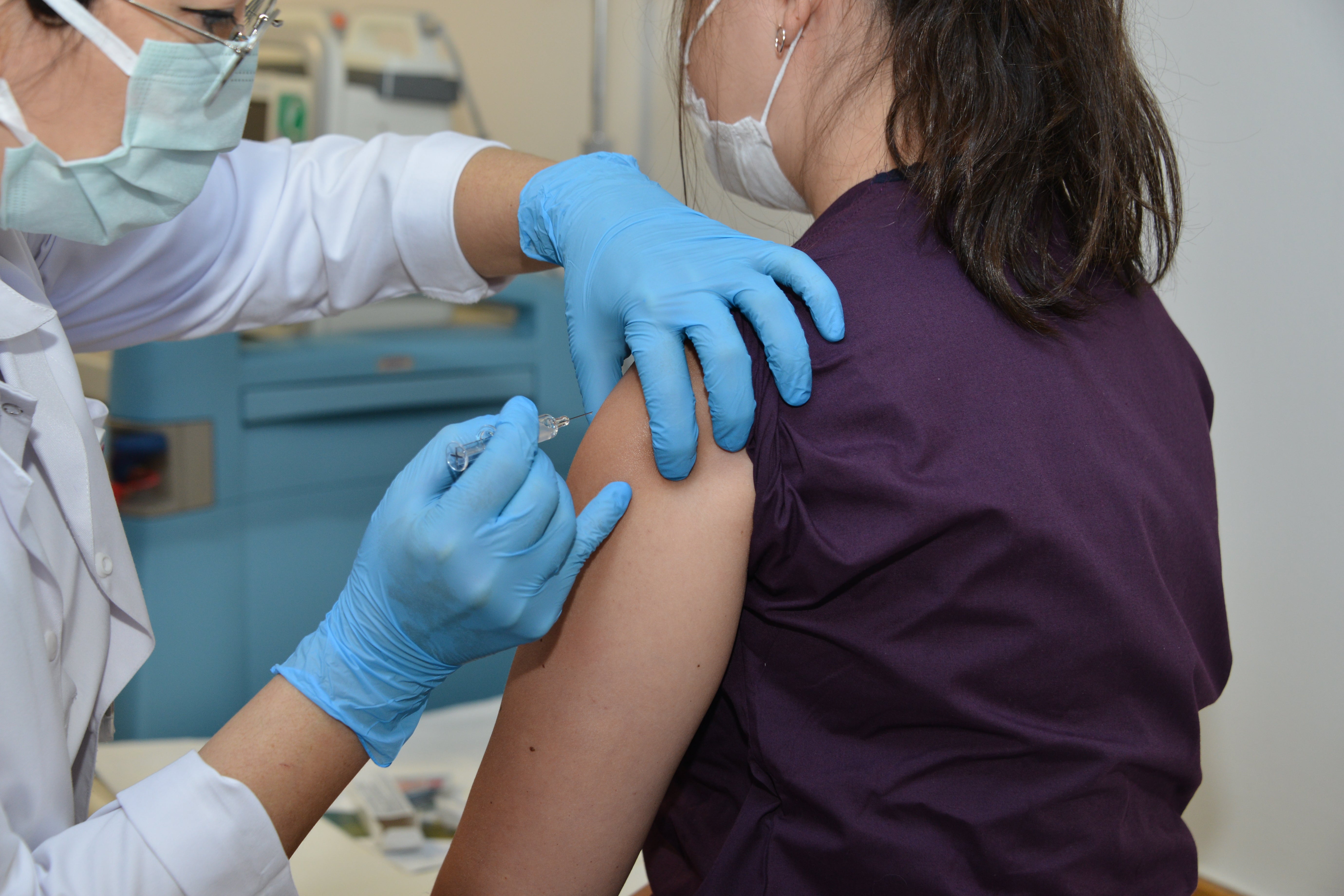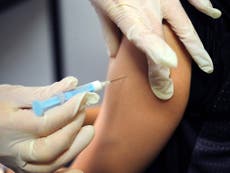One in five people in UK unlikely to get coronavirus vaccine, study finds
Experts are worried by high levels of anti-vaccine scepticism ‘at a time when there’s significant lack of confidence in the government’, writes Adam Forrest


One in five people in the UK say they are unlikely to get a coronavirus vaccine if one is approved, according to a new study which found “concerning” levels of mistrust and misinformation.
The major survey shows the scale of the task facing the government in convincing the British public of the critical role vaccination could play in eliminating the virus.
Three-quarters (78 per cent) of 17,500 adults polled by University College London researchers said they would be “likely” to get vaccinated for Covid-19, with 49 per cent saying they were “very likely” to do so.
But 22 per cent said they were unlikely to get the vaccine, and one in 10 said they were “very unlikely” to accept it – with factors including fears of unforeseen side-effects, a desire to develop natural immunity and mistrust of vaccine benefits.
Almost one in three – 30 per cent – told researchers that they believed vaccines could cause unknown future problems, while 15 per cent said they believed that vaccines do not work.
“Our study highlights a concerning level of misinformation around vaccines, which could significantly affect uptake once a Covid-19 vaccine is approved,” said lead author Dr Daisy Fancourt, from UCL’s Institute of Epidemiology and Health Care.
“Whilst the majority of people have said they are likely to get a Covid-19 vaccine once one is available, a worrying amount of respondents have said that not only will they not get the vaccine, but that they don’t believe vaccines work or worry about potential side-effects, concerns that lack any basis in fact."
She added: “It is critical the government and public health bodies publicise the importance of getting a vaccination, and explain why it will be critical in fighting the virus and protecting society.”
In May health secretary Matt Hancock said he could not rule out making a coronavirus vaccine mandatory when one gained approval in the UK. In July Boris Johnson was overheard describing “anti-vaxxers” as “nuts”.
Fear of forced vaccinations has featured at anti-lockdown protests in the US, UK and other European countries, where demonstrators also display their disproval of mask-wearing.
The UCL study authors said their findings suggest there is still a substantial level of misinformation among the public, despite vaccination fears lacking “any basis in fact”.
More than a third (38 per cent) of respondents reported believing, to varying degrees, that natural immunity is better than immunity from vaccines.
Over half (53 per cent) said they believe vaccines can cause unforeseen effects, while a quarter reported believing that vaccines are used for commercial profiteering. Some 4 per cent said they strongly believe that vaccine programmes are a “con” from pharmaceutical companies.
UCL’s Covid-19 Social Study, funded by the Nuffield Foundation, is the UK’s largest study into how adults are feeling during lockdown. More than 70,000 people have been questioned weekly over the past 26 weeks.
Cheryl Lloyd, education programme head at the Nuffield Foundation, said: “These findings reveal valuable insights into public concerns about vaccinations and highlight the importance of building public trust in the safety and efficacy of a Covid-19 vaccine, particularly at a time when there is a significant lack of confidence in the government response to the pandemic.
She added: “Given people’s reasons for distrust of vaccines, transparency about the scientific evidence and the role of commercial providers is likely to be a key factor in gaining public trust, as is involving the public in the decision-making process.”


Join our commenting forum
Join thought-provoking conversations, follow other Independent readers and see their replies
Comments